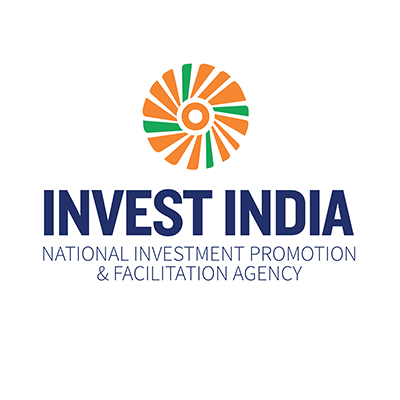Industries urged to use cost-effective technologies
India needs to enhance domestic hydrocarbon production to meet its ambitious target of 50% indigenous oil and gas supply as part of its Vision 2050, Tarun Kapoor, Secretary, Ministry of Petroleum and Natural Gas (MoPNG), said in a release on 16 Feb 2021 following the first edition of the one-of-its-kind virtual summit – Upstream Ahead.
This target necessitates ramping up of oil production by nearly four times and gas by more than five times, he told the summit.
“Industries can adopt cost reduction measures in extraction processes and employ cost-effective technologies specific to India to augment production and expand into areas considered as unviable today, besides making the Indian E&P industry competitive,” said Kapoor.
Kapoor also mooted the idea of a clear three-level system of operations in E&P ecosystem. He suggested that the NOCs could lead to create space for a level in between operators and service providers that can bridge the gaps in collaboration and operation.
With large resources unexplored, ongoing onshore and offshore surveys and data availability for better analysis, the sector is provided with immense possibilities and requires all stakeholders to get on board as a team in this journey towards Vision 2050, he said at the summit.
The first edition of ‘Upstream Ahead – Oil & Gas Exploration & Production – Towards Vision 2050’ summit has commenced under the aegis of MoPNG and DGH, providing a platform for all key stakeholders to come together and drive powerful solution-based dialogues for a smooth way forward.
This magnificent virtual summit well accommodating the needs of any offline conclave has been successfully organized by Social-Friendly.
According to SCL Das, DG, DGH, the discourses of this well-structured summit aid to deliver in short packages as part of continuum, embedded in the common shared belief about the future. The event is a curtain raiser engaging all the stakeholders and bringing a ‘Thinking Element’ into the whole exercise, he added.
Numerous positions and points of view have been outlined, covering the whole spectrum of the Oil & Gas Exploration & Production sector.
As elaborated by Dr. Anand Gupta, ADG (Development), DGH, upheaval of E&P sector through improved productivity can be achieved through incentives for early monetization and adequate policy reforms.
The need for targeted approach employing play based explorations supported by seismic and non-seismic technologies and digitalization initiatives has been voiced out by Dr. Laxma Reddy, ADG (Exploration), DGH, and echoed by the eminent panelists unequivocally.
Deployment of advanced tools like Gravity Gradiometry along with 4D seismic technology and data analytic tools can boost the efforts towards Vision 2050, opined CSV Sandilya, ONGC and Biswanath Ghosh, Cairn Oil & Gas Ltd.
Fostering growth of domestic OFES industry, to make India self-reliant in E&P sector equipment, formulating Procurement Plans are vital to unveil the opportunities lying ahead for indigenous manufacturers and MSEs, harmonizing with the Government policies under Atmanirbhar Bharat Abhiyan, as emphasized by Om Prakash Singh, Director (T&FS), ONGC.
Pankaj Kumar Goswami, Director (Operations), OIL, called for a partnership driven model for digital transformation to boost profitability for O&G companies and also help reduce emissions. However, transparency, public data sharing, data security and data residency are key aspects of concern that need to be addressed.
The oil & gas industry is subject to a persistent challenge of improving its environmental footprint. A high intensity discussion on proactive steps taken by MoEFCC for ease of conducting Oil & Gas E&P Activities has shown a way forward towards Vision 2050, reflecting a committed collective responsibility towards improvement of the environmental quality of life.
Another such discussion has evaluated the need to intensify exploration, monetize discoveries and maximize recovery by innovation, conducive policy & fiscal regime and new business models, with 50% of the country’s O&G demand estimated to be met indigenously by 2050.
Dr. Alka Mittal, Director (HR), ONGC, has very aptly stated that gender diversity is non-negotiable. A panel of experts led by her strongly believed that the energy sector needs to shift the dial by driving efforts to gender sensitization and improving gender ratio across all levels to create a diverse and inclusive workforce equipped with required knowledge and skills.
An interactive youth session has brought to light the youth’s perception on the future of O&G resonating with that of the Govt. Being the drivers of change, they have the innovation potential, environmental sensitivity and social connectivity to boost our efforts towards Vision 2050.
The value addition from the veterans-turned-academicians has contributed in bringing a holistic approach in contemplating the way forward. Dr. R K Vij, PDPU has suggested that dynamic development planning based on performance analysis, environmental factors and exploration strategies is the need of the hour. Going a step ahead, P K Painuly, UPES hinted towards preparing future workforce and aligning the academic courses to include concepts of data-driven digital transformation in curriculum.
The whole ecosystem of policies for the E&P sector in its maturing stage connected with the determined efforts towards EODB have cumulatively resulted in a revamp of regime, a hallmark of E&P development.
Amarnath, JS (Exploration), MoPNG, in his words expressed that this summit is complimentary for the industry and the government to innovate and move towards a long term vision of self-reliant India.
Collating perspectives from such a summit of global potential and focusing on short term actionable outcomes is an imperative for Indian E&P sector to sustain its vibrant role in realizing Vision 2050, said MoPNG. #manufacturing #investment #production #hydrocarbons #OPEC #technology /fiinews.com










